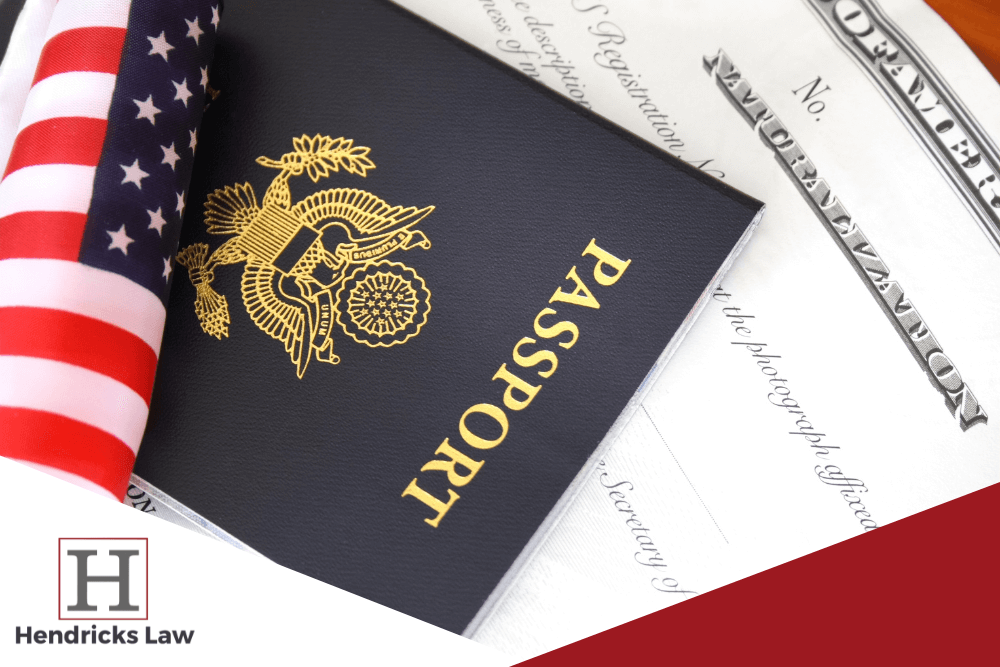What is Naturalization?
Naturalization is the process by which a foreign national becomes a U.S. citizen. You must meet several requirements to naturalize and become a citizen, but after the process is complete, you have all the same rights as an American citizen who was born in the United States.Who Can Become a U.S. Citizen?
There are two main ways to become a U.S. citizen: by being born in the United States or through naturalization. If you were born in the United States, you are automatically a U.S. citizen. If you were born outside of the United States, you may be able to become a U.S. citizen through naturalization. In order to be eligible for naturalization, you must meet the following requirements:- Be at least 18 years old
- Be a permanent resident of the United States for at least 5 years (or 3 years if you are married to a U.S. citizen)
- Be a person of good moral character
- Have basic knowledge of U.S. history and government
- Be able to read, write, and speak basic English
 How to Become a Citizen After Being a Lawful Permanent Resident for at Least 5 Years
How to Become a Citizen After Being a Lawful Permanent Resident for at Least 5 Years
After you have been a lawful permanent resident of the United States for at least 5 years, you can apply for naturalization. The first step is to file an application with the U.S. Citizenship and Immigration Services (USCIS).
You will need to include several documents with your application, including:
- Your permanent resident card (also known as a “green card”)
- Two passport-style photographs
- A copy of your birth certificate
- A copy of your marriage certificate or divorce decree, if applicable
- Your tax returns for the past 5 years
- A copy of your current employment record
After your application is processed, you’ll need to take the citizenship test and take an oath of allegiance to the United States.
How to Become a Naturalized Citizen When You’re Married to a U.S. Citizen
If you are married to a U.S. citizen, you may be eligible for naturalization after 3 years as a permanent resident. In order to qualify, you must meet the following requirements:
- Be married to a U.S. citizen
- Be a permanent resident of the United States for at least 3 years
- Be a person of good moral character
- Have basic knowledge of U.S. history and government
- Be able to read, write, and speak English
The process of becoming a naturalized citizen when you’re married to a U.S. citizen is similar to the process for becoming a citizen after being a permanent resident for 5 years. You’ll need to file an application with USCIS and include several supporting documents.
You will also need to take the citizenship test and take an oath of allegiance to the United States.
Request A Consultation Today
How to Become a U.S. Citizen if You’re Serving in the U.S. Military
If you are serving in the U.S. military, you may be eligible for expedited naturalization. In order to qualify, you must be a lawful permanent resident of the United States who’s over the age of 18, have served in the U.S. military for at least 1 year, and be a person of good moral character. You must also have basic knowledge of U.S. history and government and be able to read, write, and speak English.
You’ll need to file an application with USCIS and include several supporting documents, including your military service records. You will also need to take the citizenship test and take an oath of allegiance to the United States, which you can typically do with help from your branch’s Judge Advocate General corps.
Are You Automatically a U.S. Citizen if One of Your Parents is a U.S. Citizen?
If one of your parents is a U.S. citizen, you may be eligible for citizenship through derivation or acquisition. To apply for citizenship through derivation or acquisition, you’ll need to file an application with USCIS. You will also need to take the citizenship test and take an oath of allegiance to the United States.
Derivation vs. Acquisition
The process of becoming a U.S. citizen through your parents is different depending on whether you were born inside or outside of the United States. If you were born inside the United States, you are automatically a U.S. citizen, and you don’t need to go through the naturalization process. This is known as citizenship by derivation. If you were born outside the United States, you may be eligible for citizenship through your parents, but you will need to go through the naturalization process. This is known as citizenship by acquisition.
Citizenship by derivation is typically easier and quicker than citizenship by acquisition.
How Long Does Naturalization Take?
The process of naturalization can take between six months and a year, though some cases take longer. The first step is to submit an application for citizenship, which your attorney can do for you. After your application is received, you will be scheduled for an interview with a U.S. Citizenship and Immigration Services (USCIS) officer.
At the interview, you will be asked questions about your application and your knowledge of U.S. history and government. You will also be required to take a civics test. If you pass the interview and the civics test, you will be scheduled for a ceremony where you will take the Oath of Allegiance to the United States.
What’s on the Civics Test for Naturalization?
The civics test is an important part of the naturalization process. You will be asked up to 10 questions from a list of 100 possible questions. To pass the civics test, you must answer at least 6 out of 10 questions correctly.
Some of the topics covered on the civics test include:
- The U.S. Constitution
- The Bill of Rights
- The branches of the U.S. government
- Citizenship rights and responsibilities
You can find a complete list of civics test questions and answers on the USCIS website.
Preparing for Your Naturalization Interview
After you have submitted your application for citizenship, you will be scheduled for an interview with a USCIS officer. The interview is an important part of the naturalization process, and it is important to be prepared.
You can prepare for your interview by studying for the civics test and by reviewing the information on your application. You should also bring all required documents to your interview, such as your green card and passport.
What to Expect at Your Naturalization Ceremony
After you have passed your interview and civics test, you will be scheduled for a naturalization ceremony. At the ceremony, you will take the Oath of Allegiance to the United States. After you take the Oath of Allegiance, you are a U.S. citizen. You will receive a certificate of naturalization as proof of your citizenship.
 What Rights and Responsibilities Do U.S. Citizens Have?
What Rights and Responsibilities Do U.S. Citizens Have?
As a U.S. citizen, you have the right to vote, to hold public office, and to apply for a U.S. passport. You also have the responsibility to obey the laws of the United States and to defend the country if necessary.
You also have the responsibility to pay taxes and to serve on a jury if you are chosen. As a U.S. citizen, you have the right to live and work in the United States permanently.
Do You Need to Talk to an Immigration Lawyer About Naturalization?
If you’re considering becoming a naturalized citizen of the United States, we may be able to help you. Call our office today to schedule your free consultation. We’ll be happy to answer your questions and give you the legal advice you need.
You may also find this information helpful:
- What Is US Citizenship Through Naturalization?
- What Are The Steps Of The Naturalization Process?
- What Is The Naturalization Test? What Questions Can I Expect?
- What Happens If My Application Is Approved?
- What Rights Do I Have When Applying For Naturalization?
- What Are The Pitfalls In Trying To Navigate The Naturalization Process On Your Own?
Request A Consultation Today
U.S. immigration law can be incredibly complex – and for most people, the best course of action is to work with an immigration attorney who understands the process and federal immigration laws.


